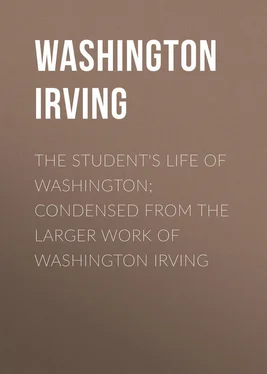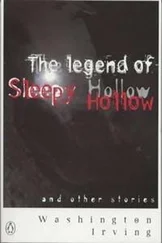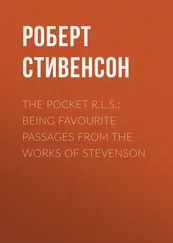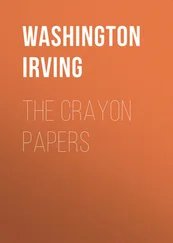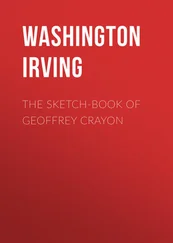Washington Irving - The Student's Life of Washington; Condensed from the Larger Work of Washington Irving
Здесь есть возможность читать онлайн «Washington Irving - The Student's Life of Washington; Condensed from the Larger Work of Washington Irving» — ознакомительный отрывок электронной книги совершенно бесплатно, а после прочтения отрывка купить полную версию. В некоторых случаях можно слушать аудио, скачать через торрент в формате fb2 и присутствует краткое содержание. Издательство: Иностранный паблик, Жанр: literature_19, foreign_antique, foreign_prose, на английском языке. Описание произведения, (предисловие) а так же отзывы посетителей доступны на портале библиотеки ЛибКат.
- Название:The Student's Life of Washington; Condensed from the Larger Work of Washington Irving
- Автор:
- Издательство:Иностранный паблик
- Жанр:
- Год:неизвестен
- ISBN:нет данных
- Рейтинг книги:3 / 5. Голосов: 1
-
Избранное:Добавить в избранное
- Отзывы:
-
Ваша оценка:
- 60
- 1
- 2
- 3
- 4
- 5
The Student's Life of Washington; Condensed from the Larger Work of Washington Irving: краткое содержание, описание и аннотация
Предлагаем к чтению аннотацию, описание, краткое содержание или предисловие (зависит от того, что написал сам автор книги «The Student's Life of Washington; Condensed from the Larger Work of Washington Irving»). Если вы не нашли необходимую информацию о книге — напишите в комментариях, мы постараемся отыскать её.
The Student's Life of Washington; Condensed from the Larger Work of Washington Irving — читать онлайн ознакомительный отрывок
Ниже представлен текст книги, разбитый по страницам. Система сохранения места последней прочитанной страницы, позволяет с удобством читать онлайн бесплатно книгу «The Student's Life of Washington; Condensed from the Larger Work of Washington Irving», без необходимости каждый раз заново искать на чём Вы остановились. Поставьте закладку, и сможете в любой момент перейти на страницу, на которой закончили чтение.
Интервал:
Закладка:
General Thomas Gage had recently been appointed to the military command of Massachusetts, and the carrying out of these offensive acts. As lieutenant-colonel, he had led the advance guard on the field of Braddock's defeat. Fortune had since gone well with him. Rising in the service, he had been governor of Montreal, and had succeeded Amherst in the command of the British forces on this continent. He was linked to the country also by domestic ties, having married into one of the most respectable families of New Jersey. In the various situations in which he had hitherto been placed he had won esteem, and rendered himself popular. But with all his experience in America he had formed a most erroneous opinion of the character of the people. "The Americans," said he to the king, "will be lions only as long as the English are lambs;" and he engaged, with five regiments, to keep Boston quiet!
The manner in which his attempts to enforce the recent acts of Parliament were resented, showed how egregiously he was in error. At the suggestion of the Assembly, a paper was circulated through the province by the committee of correspondence, entitled "a solemn league and covenant," the subscribers to which bound themselves to break off all intercourse with Great Britain from the 1st of August, until the colony should be restored to the enjoyment of its chartered rights; and to renounce all dealings with those who should refuse to enter into this compact.
The very title of league and covenant had an ominous sound, and startled General Gage. He issued a proclamation, denouncing it as illegal and traitorous. Furthermore, he encamped a force of infantry and artillery on Boston Common, as if prepared to enact the lion. An alarm spread through the adjacent country. "Boston is to be blockaded! Boston is to be reduced to obedience by force or famine!" The spirit of the yeomanry was aroused. They sent in word to the inhabitants promising to come to their aid if necessary; and urging them to stand fast to the faith.
CHAPTER XV.
THE FIRST GENERAL CONGRESS
Shortly after Washington's return to Mount Vernon, in the latter part of June, he presided as moderator at a meeting of the inhabitants of Fairfax County, wherein, after the recent acts of Parliament had been discussed, a committee was appointed, with himself as chairman, to draw up resolutions expressive of the sentiments of the present meeting, and to report the same at a general meeting of the county, to be held in the court-house on the 18th of July.
The committee met according to appointment, with Washington as chairman. The resolutions framed at the meeting insisted, as usual, on the right of self-government, and the principle that taxation and representation were in their nature inseparable: that the various acts of Parliament for raising revenue, taking away trials by jury, ordering that persons might be tried in a different country from that in which the cause of accusation originated, closing the port of Boston, abrogating the charter of Massachusetts Bay, etc., etc., were all part of a premeditated design and system to introduce arbitrary government into the colonies; that the sudden and repeated dissolutions of Assemblies whenever they presumed to examine the illegality of ministerial mandates, or deliberated on the violated rights of their constituents, were part of the same system, and calculated and intended to drive the people of the colonies to a state of desperation, and to dissolve the compact by which their ancestors bound themselves and their posterity to remain dependent on the British crown. The resolutions, furthermore, recommended the most perfect union and co-operation among the colonies; solemn covenants with respect to non-importation and non-intercourse, and a renunciation of all dealings with any colony, town, or province that should refuse to agree to the plan adopted by the General Congress. They also recommended a dutiful petition and remonstrance from the Congress to the king, asserting their constitutional rights and privileges; lamenting the necessity of entering into measures that might be displeasing; declaring their attachment to his person, family, and government, and their desire to continue in dependence upon Great Britain; beseeching him not to reduce his faithful subjects of America to desperation, and to reflect that from our sovereign there can be but one appeal .
The resolutions reported by the committee were adopted, and Washington was chosen a delegate to represent the county at the General Convention of the province, to be held at Williamsburg on the 1st of August. [On the date appointed the convention assembled.] Washington appeared on behalf of Fairfax County, and presented the resolutions, already cited, as the sense of his constituents. He is said, by one who was present, to have spoken in support of them in a strain of uncommon eloquence. The Convention was six days in session. Resolutions, in the same spirit with those passed in Fairfax County, were adopted, and Peyton Randolph, Richard Henry Lee, George Washington, Patrick Henry, Richard Bland, Benjamin Harrison, and Edmund Pendleton, were appointed delegates, to represent the people of Virginia in the General Congress.
General Gage from the time of taking command at Boston, had been perplexed how to manage its inhabitants. Had they been hot-headed, impulsive, and prone to paroxysm, his task would have been comparatively easy; but it was the cool, shrewd common sense, by which all their movements were regulated, that confounded him. There was no uproar, no riots; everything was awfully systematic and according to rule. Town meetings were held, in which public rights and public measures were eloquently discussed by John Adams, Josiah Quincy, and other eminent men. Over these meetings Samuel Adams presided as moderator; a man clear in judgment, calm in conduct, inflexible in resolution, deeply grounded in civil and political history, and infallible on all points of constitutional law.
Gage was at a loss how to act. It would not do to disperse these assemblages by force of arms; for the people who composed them mingled the soldier with the polemic; and like their prototypes, the covenanters of yore, if prone to argue, were as ready to fight. So the meetings continued to be held pertinaciously. Faneuil Hall was at times unable to hold them, and they swarmed from that revolutionary hive into old South Church. The liberty tree became a rallying place for any popular movement, and a flag hoisted on it was saluted by all processions as the emblem of the popular cause.
When the time approached for the meeting of the General Congress at Philadelphia, Washington was joined at Mount Vernon by Patrick Henry and Edmund Pendleton, and they performed the journey together on horseback. It was a noble companionship. Henry was then in the youthful vigor and elasticity of his bounding genius, ardent, acute, fanciful, eloquent; Pendleton, schooled in public life, a veteran in council, with native force of intellect, and habits of deep reflection; Washington, in the meridian of his days, mature in wisdom, comprehensive in mind, sagacious in foresight. Such were the apostles of liberty, repairing on their august pilgrimage to Philadelphia from all parts of the land, to lay the foundations of a mighty empire.
Congress assembled on Monday, the 5th of September, in a large room in Carpenter's Hall. There were fifty-one delegates, representing all the colonies excepting Georgia. The meeting has been described as "awfully solemn." The most eminent men of the various colonies were now for the first time brought together; they were known to each other by fame, but were, personally, strangers. The object which had called them together was of incalculable magnitude. The liberties of no less than three millions of people, with that of all their posterity, were staked on the wisdom and energy of their councils.
Читать дальшеИнтервал:
Закладка:
Похожие книги на «The Student's Life of Washington; Condensed from the Larger Work of Washington Irving»
Представляем Вашему вниманию похожие книги на «The Student's Life of Washington; Condensed from the Larger Work of Washington Irving» списком для выбора. Мы отобрали схожую по названию и смыслу литературу в надежде предоставить читателям больше вариантов отыскать новые, интересные, ещё непрочитанные произведения.
Обсуждение, отзывы о книге «The Student's Life of Washington; Condensed from the Larger Work of Washington Irving» и просто собственные мнения читателей. Оставьте ваши комментарии, напишите, что Вы думаете о произведении, его смысле или главных героях. Укажите что конкретно понравилось, а что нет, и почему Вы так считаете.
